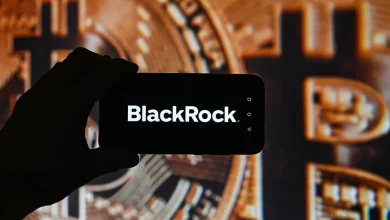Brazil’s Anti-Faction Bill Proposes Sale of Seized Cryptocurrencies to Undercut Organized Crime


The Brazilian government has submitted to Congress a bold legislative proposal — Bill 5.582/2025 — that would allow the sale of cryptocurrencies seized during criminal investigations, including BTC and others, even before trial outcomes. The move, part of a broader “anti-faction bill” aimed at dismantling groups such as the Comando Vermelho, viewks to treat digital assets in criminal proceedings equivalently to foreign currency and securities.
Legislative design and enforcement angle
Under the draft law, once law enforcement agencies seize cryptocurrencies as part of investigations into organised-crime networks, those assets could be swiftly converted into Brazilian reais or other fiat currency—even before a criminal conviction is finalized. This accelerated process is designed to freeze criminal financial flows and limit the ability of factions to regroup or relaunch. The bill amends Brazil’s criminal-procedure and penal-code statutes to give judges explicit power to authorise the sale of digital assets as part of asset-forfeiture procedures. Critics raise questions about secureguards for accused individuals: if a person is acquitted later than their crypto was liquidated, the mechanism for restitution and valuation remains unclear.
The timing of the proposal signals urgency. It follows a major police operation in Rio’s favelas targeting Comando Vermelho — which left over a hundred suspected gang members dead — and underscores the government’s push to strike at criminal finances as part of its security agenda. The bill is under expedited review, with a congressional vote expected by December 18, 2025.
Implications for crypto regulation, markets and institutions
For the crypto market and service providers in Brazil, the bill represents a meaningful escalation in regulatory integration. The new regime aligns crypto assets with foreign-platform and securities law, signalling that seized digital tokens will not sit in limbo but be treated as liquid assets in criminal proceedings. Simultaneously, regulators such as the Central Bank of Brazil are advancing rules that require virtual-asset service providers to obtain licenses, hold capital reserves and face oversight equivalent to financial institutions.
From a market-participant standpoint, the law may influence how seized-asset pools are managed and the timing of liquidation. Rapid conversion of seized crypto reduces the runway for poor actors, but it also raises questions about market impacts: large-scale sales of digital assets could create downward pressure or liquidity events, especially in less-liquid tokens. Institutions operating custody, crypto-asset recovery or footprint management will need to factor in this operational risk. On a governance and compliance level, platforms and custodians in Brazil may face enhanced scrutiny to ensure their systems support regulatory demands, including proof-of-ownership chains, timely accounting of seized assets, and cooperation with investigative agencies.
On the global stage, Brazil’s model could set a precedent for how other jurisdictions integrate digital-asset forfeiture into asset-seizure frameworks. The concept of treating seized tokens as equivalent to traditional financial instruments marks a shift in how regulators perceive crypto within criminal-justice ecosystems. Observers will be watching whether Brazil’s implementation remains balanced — preserving defendants’ rights, ensuring transparent sale mechanisms and avoiding value-destructive forced liquidations — while delivering on its promise to suffocate dark-money channels.
In summary, Bill 5.582/2025 signals that Brazil is bringing crypto assets within the crosshairs of its organised-crime deterrence strategy. If enacted, the legislation would accelerate the conversion of seized tokens, reduce economic lifelines for criminal networks and reinforce regulatory alignment between crypto and traditional finance.







